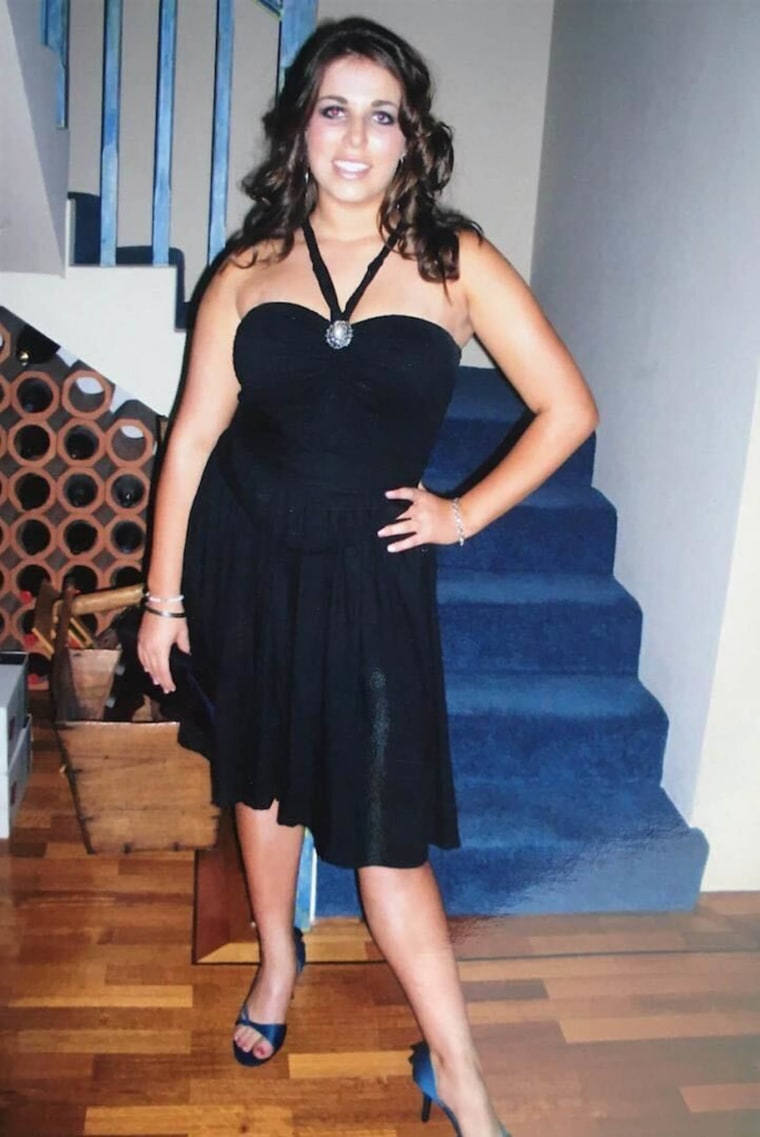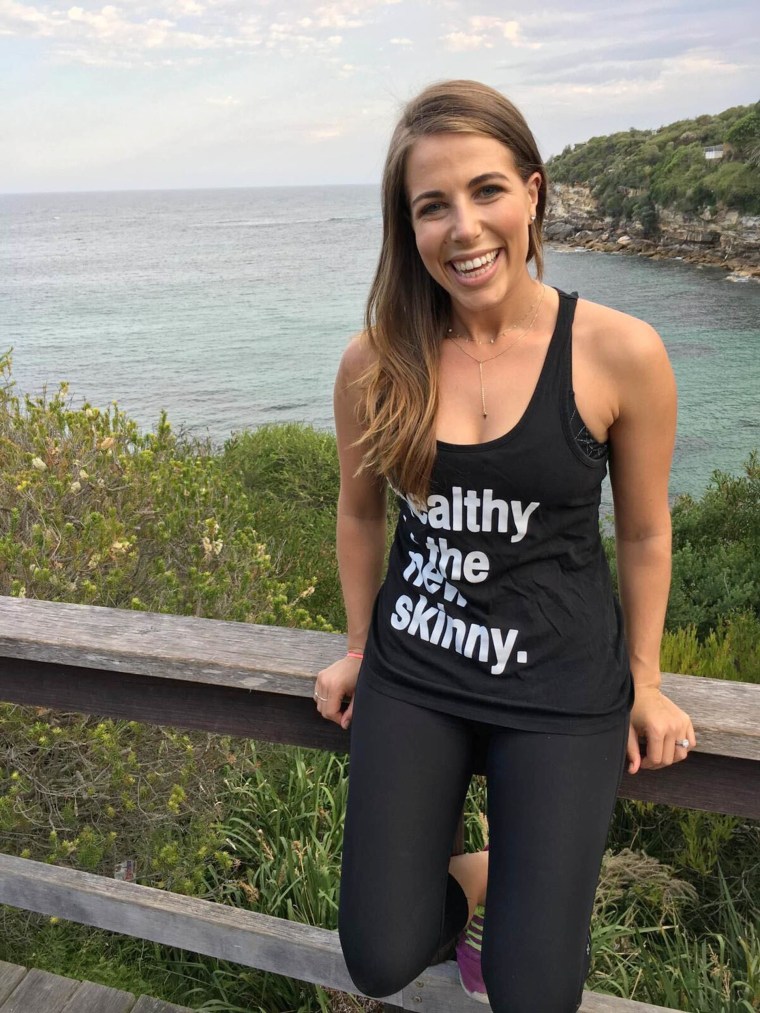Lyndi Cohen, a dietician in Sydney, Australia, has written a powerful open letter to her mother about the impact of diet culture on families.
Cohen was 10 when her mom took her to see a nutritionist, despite being within a healthy weight range. At 13, Cohen attended her first Weight Watchers meeting, and by 16, she was battling a binge-eating disorder.
“I was binging multiple times a day and in secret,” Cohen, 34, tells TODAY.com. “The more my mom commented on my body, the more I ate. It was a vicious cycle."

On April 23, Australian lifestyle website Mamamia published an essay by Cohen, in which she opens up about generational dieting trauma.
“Dear Mum,” Cohen, 34, began. “Firstly, I’m so sorry that you were put on a diet. For generations, we have been passing down disordered eating from mother to daughter like a crappy, chipped tea set that no one wants.
“Baby boomers. Your generation got hit the hardest by diet culture," she continued. "Growing up, your role models were Jane Fonda, Princess Diana, and Jerry Hall! Women who we now know had untreated, undiagnosed eating disorders, and who were praised for their impossible slim physiques.”

Coming from a place of understanding, Cohen notes that the term “body neutrality” did not exist when her mom was a child. She also points out that there were “exactly ZERO conversations about accepting your body,” or that heath is not a “certain size.”
“I used to feel so angry at you for putting me on a diet. But realizing that you were put in the same situation as me, and told your worth was tied to your weight, transformed that anger into empathy,” Cohen wrote.

Cohen tells TODAY.com her mom sat her down years ago and apologized.
“Her apology helped me to let go of so much anger,” Cohen says. “Moms in the ‘90s thought they were looking out for us by teaching us to count calories and avoid ‘bad’ foods.’ They genuinely believed they were helping us. What my mom did, it came from a good place."
In 2022, the term “almond mom” went viral on TikTok. According to Dr. Karla Lester, a pediatrician and childhood obesity expert, an almond mom is a person who is usually “stuck in diet culture,” and grew up hearing phrases such as “you’re not hungry you’re bored.”
“The almond mom phenomenon is rooted in fat phobia and internalized bias, Lester previously told TODAY.com. “She projects her own fears onto her children and in doing so, teaches them that she doesn’t accept them unless they’re at a weight that may be unattainable.”

Dani Lebovitz, a pediatric dietician, told TODAY.com that when parents vilify certain foods, it can create a scarcity mindset that leads to sneaking and overeating.
That was the case for Cohen, who began binging multiple times a day and in secret.
“The biggest predictor of weight gain over time is not genetics or how often you exercise — it’s whether or not you diet," Cohen says. “You slow your metabolism and you increase your cravings for the very foods you’re trying to avoid.”
Cohen, a nutritionist and mother of two, uses her online platforms to educate parents on how to raise kids with healthy body image.
“The most powerful thing we can do as moms is to work on our own relationship with food,” Cohen explains. “Children are listening when we say, ‘I feel so fat,’ or ‘I shouldn’t have eaten that.’ They’re taking it all in.”
Cohen concluded her essay for Mamamia with an empowering message for "all those little girls, who were once put on diets" and are now moms.
"We can be the first generation to teach our kids a new way of thinking about food," Cohen wrote. "You can give your kids a better blueprint for living a healthy life than you were given. So that they become the kind of people who eat when hungry, and stop when they are full."